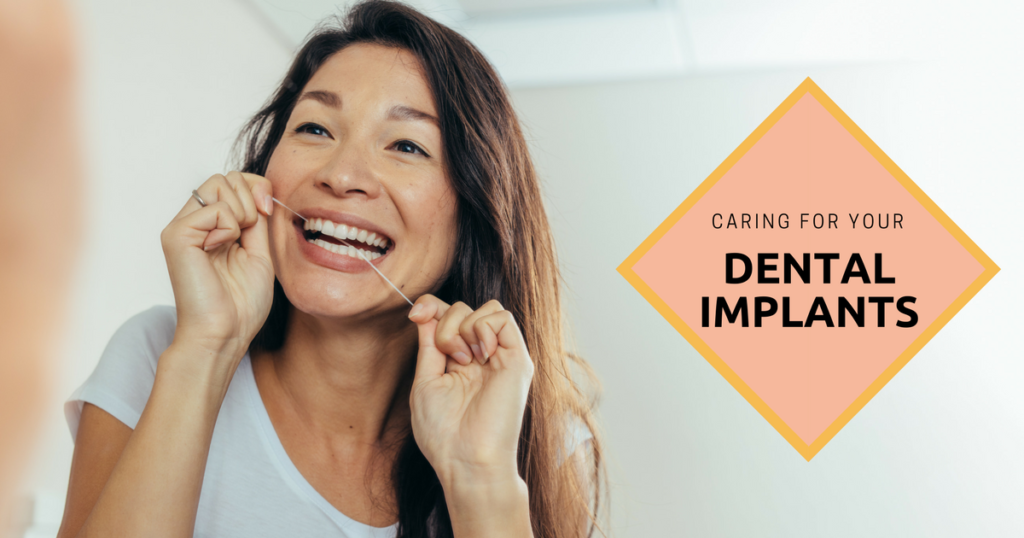
Caring for Your Dental Implants in Aberdeen
Getting dental implants is a big decision. A new set of teeth can drastically enhance one’s confidence and overall outlook on life. And if you feel embarrassed about missing teeth, tooth loss is much more common than most think. Just like real teeth, you want your new implants to properly function and last as long as possible. And, for the most part, you care for them just the same as real teeth. We’ll cover how to care for your dental implants from the surgery process to the final restoration placement. Avoid going through implant surgery more than necessary by following our guide to caring for your brand new smile. For general questions on dental implants in Aberdeen contact Jonathan Min DDS.
1. Let Your Implants Heal. Before you’re ready for the crowns or what appear to be teeth, your dentist will surgically insert the implants into your mouth. These implants are designed to grow with your jawbone for a natural and secure feel. This growth process is called osseointegration.
During osseointegration, your mouth will need time to heal just as you might heal after any other surgery. It’s very important to follow your Aberdeen dentist’s instructions. Eating soft foods and avoiding smoking will be included. Smoking can negatively impact your healing by restricting blood flow to your gums and bone which make it difficult for the implant to fuse to your bone. Smoking also makes patients more susceptible to gum disease which can hinder the success rate of your dental implants. The type of procedure and overall health of the patient will determine the time frame for healing.
Ask your dentist about wearing temporary teeth during this healing period if you are concerned about the look of your smile. In some cases, dentists can place a type of implant supported dentures, All-on-4’s, in one day. If this one-day procedure is of interest to you, check with your dentist to see if this is an option and if you are a candidate.
2. Be Gentle. While your implants are healing, your gums will be very sensitive. As mentioned above, this means you will have to eat soft foods. But this also means you will want to adjust your brushing routine.
If you weren’t already doing so, be sure to brush your teeth gently. Keep harsh bristles away from your gums and use gentle, circular motions to clean teeth. You may also want to consider using soft picks for flossing instead of traditional string floss. Consult with your dentist for product recommendations.
3. Schedule Future Check Ups. Just like natural teeth, it’s essential to visit your dentist periodically to make sure your implants are healthy. Your dentist will help schedule future appointments and determine how often you need to make follow up visits.
Follow up appointments will be made after the process is complete. The process of getting implants varies depending on your situation and overall health. Three months to a year is pretty typical. If you think this sounds like a long time… would you rather have a smile you’re unhappy with for the rest of your life or take 6 months to get the smile of your dreams?
Be sure to keep all your appointments – don’t miss them! Regular maintenance early on is especially important.
4. Brush, Floss, Rinse. It should come as no surprise that basic care of your dental implants is the same as your natural teeth. During the early months, you may find that a gentle approach is better. As you get used to the implants, you can expect to return to your normal brushing routine.
Flossing is essential when caring for implants. Getting food caught in the implants could cause plaque build-up, periodontal disease, and might require surgery for replacement implants. Taking care of your new teeth will help avoid any unnecessary costs!
As with any dental procedure, follow your dentist’s instructions carefully when getting implants. Your dentist knows your mouth health best, and will help you through the process smoothly. We hope these tips help prepare you for your new confident smile!
